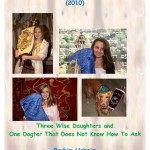Main Piece: Passover Dinner
I personally am not Jewish, but I had the opportunity to attend a Passover dinner at my friend Sam’s house this year with their family. We ate a lot of different foods traditionally associated with Passover. There was brisket, matzo ball soup, Gefilte fish, and a sweet matzo kugel. The matzo kugel was something new to me, so I asked about it specifically.
My friends mother told me that Kugel is a Yiddish term stemming from Germany. German Jews would mix flour, water, and apples, that created a sweet matzo-like dessert. This is a dish traditionally served in the family as a savory dessert that has a historical context to it. It consisted of Granny-Smith apples, cinnamon, sugar, butter, and matzo.
Background:
My friend told me this is a dish that has been in his family for many generations, being passed down to his mother by her mother, and to her by her mother, and so on. Matzo itself is a traditional dish in the Jewish tradition. It stems from the Jewish diaspora from Egypt, when all they had was flour and water (no yeast), which resulted in the matzo bread being flat, since it could not rise.
They liked this recipe because not only is it delicious, but it has cultural significance and is more of a delicacy made for special occasions. It isn’t just prepared for your everyday meal, and that gives you a way to make a meal special in that sense.
Context:
Passover is a celebration of their liberation by God from slavery in Egypt. It commemorates the Exodus, and lasts for seven or eight days depending on the specific religion, during the Hebrew month of Nisan. Matzo is a big part of the meal, as it is derived from the event that is being celebrated during this holiday. This is why a majority of the dishes consist of matzo, and it has a certain level of historical context to being so prominent in the celebration.
Traditionally throughout the week of Passover, Jews are not supposed to consume yeast, and only matzo, to pay homage to the religion and its history. Because this is such an important holiday in the tradition, matzo kugel is prepared for this special occasion.
My thoughts:
Personally I am not a fan of fruity desserts, I think desserts should be something along the lines of ice cream or cake. I still tried it out of respect and although it was not my favorite, I could tell it was a delicacy in my friends household, as everyone got excited once it became time for dessert.

